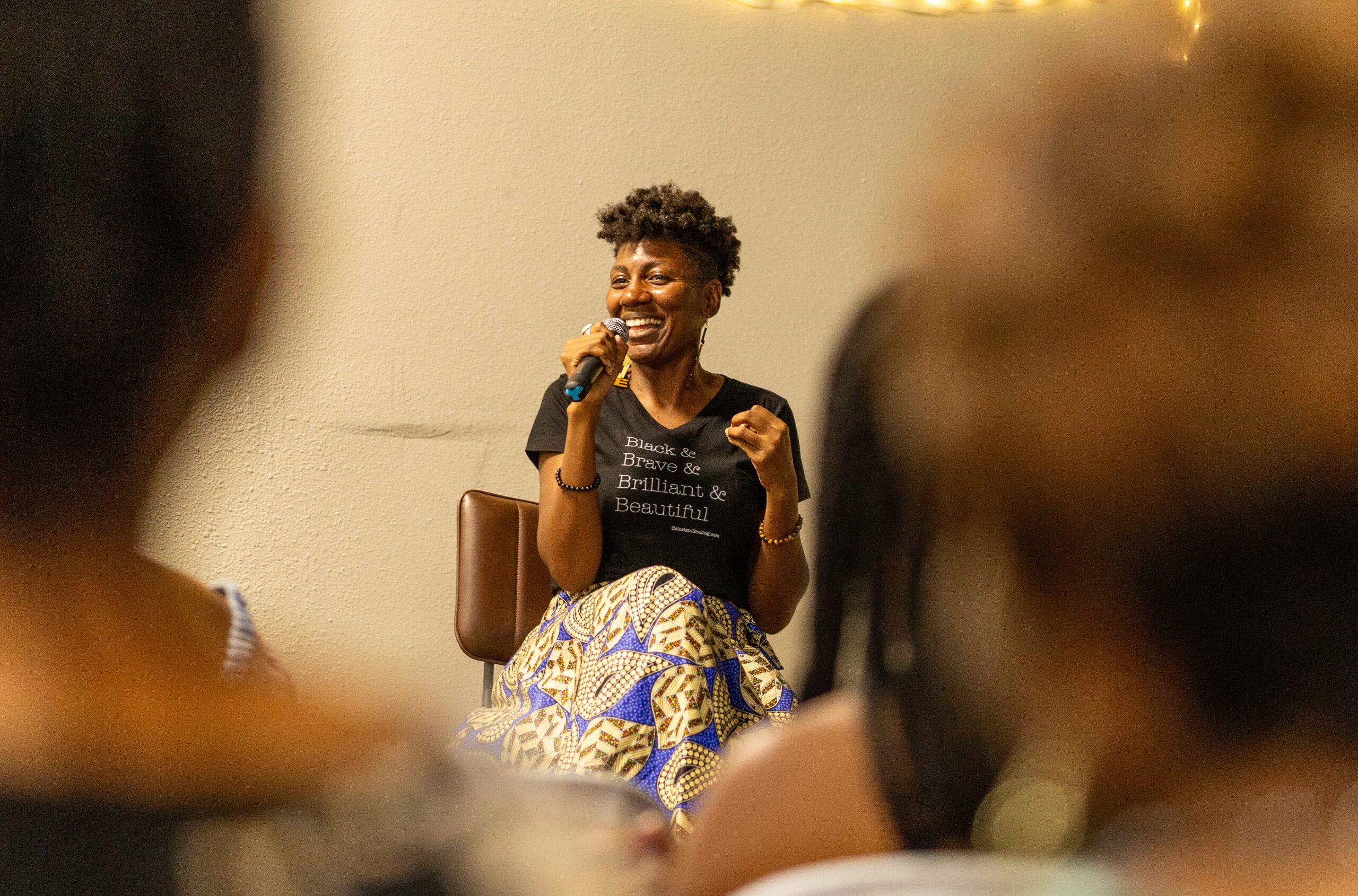There are telltale signs that show when it’s time to stop. To take a break. These signs will come as feelings you can’t ignore.
For Dr. Sarah L. Webb, founder of Colorism Healing, a global initiative that raises awareness of colorism, the first one is resentment.
“I’m giving all this energy and time and labor and it’s not flowing back to me,” she said. “I knew that when I was feeling exhausted, when I was feeling resentful, I felt depleted, that I had to step back.”
Webb has spent more than a decade creating space to examine and heal from colorism which she explains as the social marginalization and systemic oppression of people with darker skin tones, and the privileging of people with lighter ones. The term colorism can be traced back to the writer Alice Walker and is often defined as the preferential treatment given to people within any ethnic or racial group on the basis of skin tone.
But sustaining her work and advocacy throughout these years would not have been possible without taking necessary breaks. Breaks that have allowed her rest and realignment.
I first came across Webb, who’s based in New York, in one of her weekly live sessions during the pandemic. I was drawn in not just by the wealth of information, but also by the passionate and compassionate way she delivered her messages.
Through Colorism Healing, which she launched in 2013, she has built an expansive body of work. This includes a colorism database and research-backed videos unpacking how colorism shows up in workplaces and in media, as well as ways to unlearn it.
As a dark-skinned black woman, her work around colorism is deeply personal.
“A lot of people who are drawn to do work in service in the community identify with that community in some way, or have really close loved ones who do,” she said.
Initially, she found the work cathartic. But as she progressed in her own healing, “the work started requiring more,” she said. People started turning to her for guidance.
What began as a side project while she pursued a PhD and taught turned full-time. It started to take a toll, and she realized how much she had been doing. The personal attachment, a source of her drive, was a double-edged sword.
“It’s about my direct oppression,” she said. “And I’m constantly retraumatized in doing the work. And I don’t think that’s the case for everyone who has a business.”
Webb says a “deep core-purpose alignment” has propelled her to give her all for more than a decade. But she has learned to be comfortable taking breaks so that she can keep going.
There is plenty online for those that care to look, on burn-out, rest, and the more popular “self-care”.
But taking rest often means confronting internalized beliefs. “Rest has been equated with laziness,” said Webb, whose thinking has been shaped by Black feminist thinkers like Tricia Hersey, author of Rest is Resistance.
Much like colorism, which affects women differently, rest, too, has a gendered layer.
“When you think about being a minoritized identity, you work the same amount and get less than half the results,” explained Webb. Working more then becomes necessary “to get the same slice of the pie”.
Rest has also served her as a compass.
The strong inner world she developed as a child, what she calls a “deep sense of interiority,” has helped her listen to the signs when they come up. In her early twenties, it was these signs that made her switch her major from architecture to English.
“My life is trying to show me that I’m not in my purpose, that I’m not being authentic to what my skill, my desire, my capacity and interests are. And it had a direct correlation to things like depression.”
More recently, she took a hiatus from the weekly livestreams she had been hosting on colorism.
When she returned, a few weeks ago, it was with a new format: Full Cup Fridays. These Instagram Live sessions are a more casual hangout, offering love and support, and filling each other’s “spiritual cups”.
This has been part of her reinvention and evolution.
“It was so needed,” she said of the break. It gave her the space and the bandwidth to realign. “Am I still on the right path? Am I even supposed to still do this work? Those are things that, if we just stay on the treadmill, you never have the time to reflect.”
Self-awareness goes a long way, she says. An activity like talking to people can be depleting for some and energizing for others
Proper compensation is also key. Whether that is monetary, barter, support, or even acknowledgement of the work she puts in.
And the community around her has been a big part of this. Her family, friends, and the one she has been building.
“If you build it, they will come,” she said of the Colorism Healing community. “As problematic as the internet has been, this would not have happened for me without the internet and the tools we have.”
Her first readers and followers were from other continents. Those virtual connections have grown stronger through real-life meetings.
In her work with Colorism Healing, she’s learned to look for the people and relationships that give her something, rather than just depleting her.
Being in community with others means also paying attention to those around us and not waiting until people are in the most dire of circumstances before reaching out. “These are the relationships we want to cultivate,” said Webb in her last live session.



